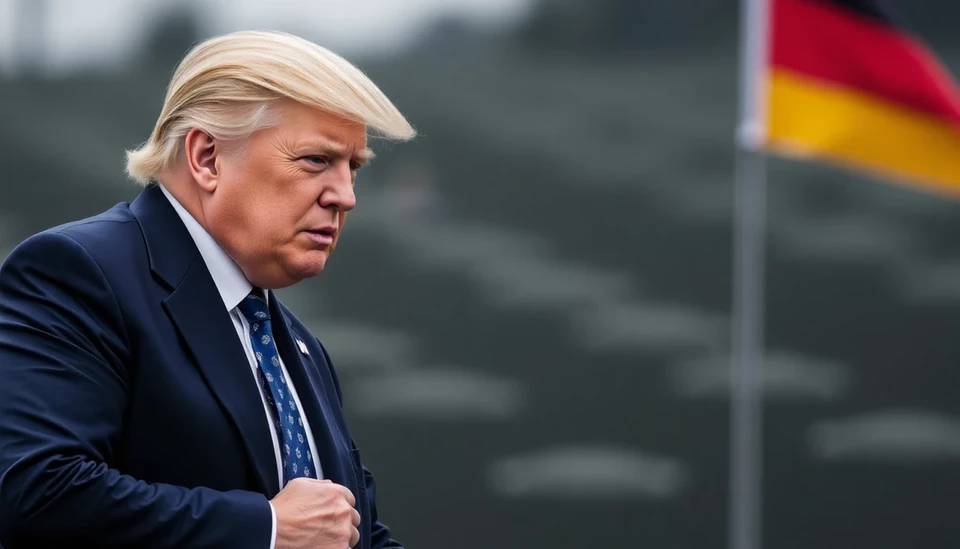
In an alarming forecast for Germany’s economy, the President of the German Bundesbank, Joachim Nagel, has expressed concern that proposed tariff plans by former President Donald Trump could lead to a significant economic setback, potentially costing Germany as much as 1% of its GDP. This commentary comes in the wake of ongoing discussions about trade policies under the potential return of Trump to the White House in the upcoming 2024 presidential elections.
Nagel's statements were delivered at a recent economic conference, where he emphasized the interconnectedness of global economies and the potential repercussions of unilateral trade measures. He highlighted that the introduction of higher tariffs could not only disrupt trade relationships but also foster an environment of uncertainty for businesses operating in the Eurozone.
The implications of Trump’s tariff strategies date back to his initial presidency, where similar policies resulted in strained relations with key trading partners. Nagel pointed out that Germany, as one of the largest economies in Europe, could be particularly vulnerable to such shifts, as the country relies heavily on exports. With tariffs potentially inflating costs for German manufacturers, a cascading effect on employment and production levels could unfold, impacting the economy at large.
Analysts have voiced that if Trump were to implement these tariff policies, it wouldn’t just be Germany that would feel the impact; other European nations could also suffer long-term economic consequences. Nagel’s warnings resonate with broader concerns around protectionism and economic nationalism, which could lead to a breakdown in the free trade principles that many European countries have long supported.
As the political landscape continues to evolve with the impending elections, businesses and financial institutions are urged to prepare for a potential shift in trade policy. The uncertainty surrounding Trump’s possible return to power, along with his historical inclination toward tariffs, has created a climate of speculation among economists and traders alike.
With rising inflation and lingering supply chain challenges still affecting the global market, the timing of these tariffs, if enacted, could exacerbate existing pressures on the economy. Nagel calls for a measured approach to trade that fosters cooperation rather than conflict, advocating for dialogue among nations to address trade imbalances without resorting to protective measures.
As Germany navigates these uncertain waters, the stakes will remain high not just for their economy, but for the entire European economic framework. It remains to be seen how U.S. trade policies will evolve in the months leading up to the election and how they will ultimately affect Germany’s economic future.
#TrumpTariffs #GermanyEconomy #GlobalTrade #JoachimNagel #EconomicImpact #USPolitics #2024Elections #FreeTrade #Protectionism #GDPReduction
Author: Daniel Foster




